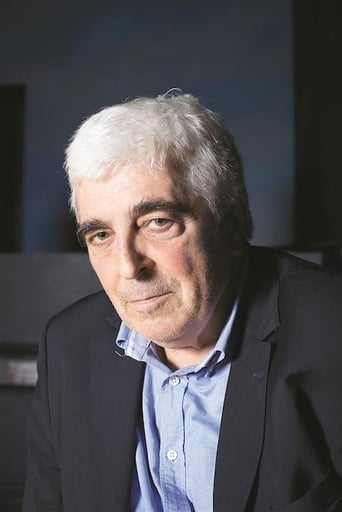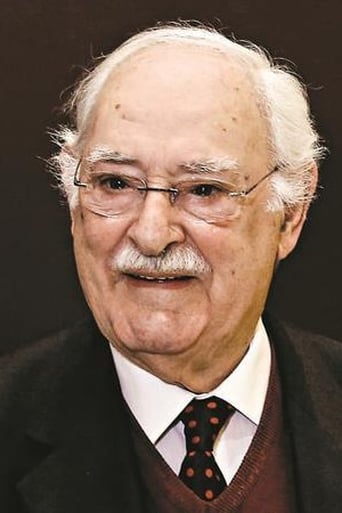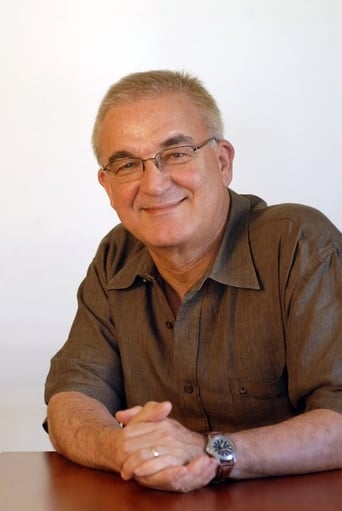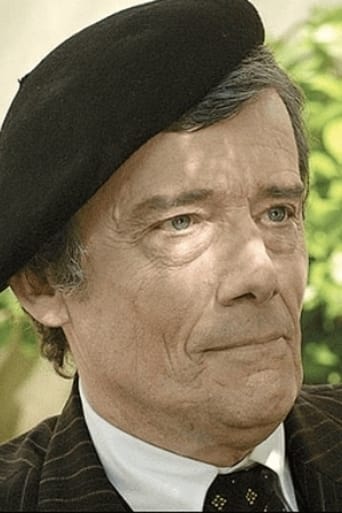NekoHomey
Purely Joyful Movie!
InformationRap
This is one of the few movies I've ever seen where the whole audience broke into spontaneous, loud applause a third of the way in.
Fleur
Actress is magnificent and exudes a hypnotic screen presence in this affecting drama.
pbeno-49876
Dreary, dull exhibition of post-modern amoralism. Not a single interesting, likeable, or unlikeable character from top to bottom. Almost watched the whole thing til I realized I could have listened to The Ramones instead.
John Car
Oliveira asked Agustina Bessa-Luís to write him an adaptation of Flaubert's Madame Bovary for contemporary Portugal. The result was Abraham's Valley, the romance that served as the basis of Oliveira's script. The book and the film are very different. Comparing them is not a fruitful exercise. Fortunately, Oliveira had no reverence for Agustina's fabulous writing and used her text with total freedom.Agustina placed the story in Douro, a most romantic and sensual Douro, "a land predestined to suffering" incomparably filmed by Oliveira. Abraham's Valley is a story of rebellion and frustration that flows through the spaces of that region: houses, palaces, gardens, vineyards and the river, to which Ema (Leonor Silveira) offers herself in the end: "You are beautiful, said the princess, but you didn't arrive in time to this place." Abraham's Valley is maybe Oliveira's most loved film. I won't dare to say it is his best. But between Vermeer's hypnotic aura and Agustina's and Oliveira's cruelty, it is certainly one of the most beautiful and provoking films ever made.
Marc
"Abraham's Valley" may be the most extraordinary achievement of Portuguese cinema which confirms that Manoel de Oliveira is among the world's greatest filmmakers capable of creating an unmistakably personal style and sensibility while depicting the human condition. I agree with the first comment which pointed out that one cannot speak of a direct adaptation of Flaubert's novel, but it should also be mentioned that de Oliveira – comparable to Robert Bresson and his film versions of Dostoyevsky's works – conveys the theme into his very own microcosm, and leaves the source material behind while at the same time maintaining key elements of the narrative and the ambivalence of the main character. The rigid and formal aestheticism which de Oliveira had been developing throughout his long career doesn't require camera movements, and stands out due to a brilliant sense for composition that actually seems to owe a lot to the staging techniques of early silent cinema as well as the eclectic rigours of C. T. Dreyer and Straub/Huillet. The few times the camera moves it creates an amazing effect on the viewer, as if de Oliveira were re-inventing the effect.The antique interior decorations and the spellbinding landscape of the Douro valley reshape the overall baroque but vital feel of a film which is constantly guided by an omniscient voice over that funds Flaubert's Emma and the one played by Leonor Silveira. "Abraham Valley" is in my opinion one of the most beautiful and authentic masterpieces of recent decades, but since the critical world doesn't seem to give much credit to Portuguese cinema in general (aside those co-productions which feature international stars) the viewer might be lucky enough to catch this film during a retrospective at a cinematheque.
valadas
Well the resemblance of the plot with the Flaubert's novel is very superficial after all. This is much more than a story of bourgeois adultery. It's the story of an intelligent and sensitive young woman brought up in the frame of the society of mid-20th century northern Portugal in an atmosphere of bigotry and social stagnation who marries a man she does not love and whose life has no way out. The plot develops itself in old rural mansions under the eyes of a silent witness, the deaf-and-dumb servant Ritinha who sees everything and understands everything without speaking or intervening by any means but forming with Ema the main character, a strong union of love and mutual understanding. The visual images develop themselves in a slow poetic movement which is Oliveira's favourite. The scenery however, is beautifully located in the Portuguese river Douro one of the most beautiful rivers in the world.





